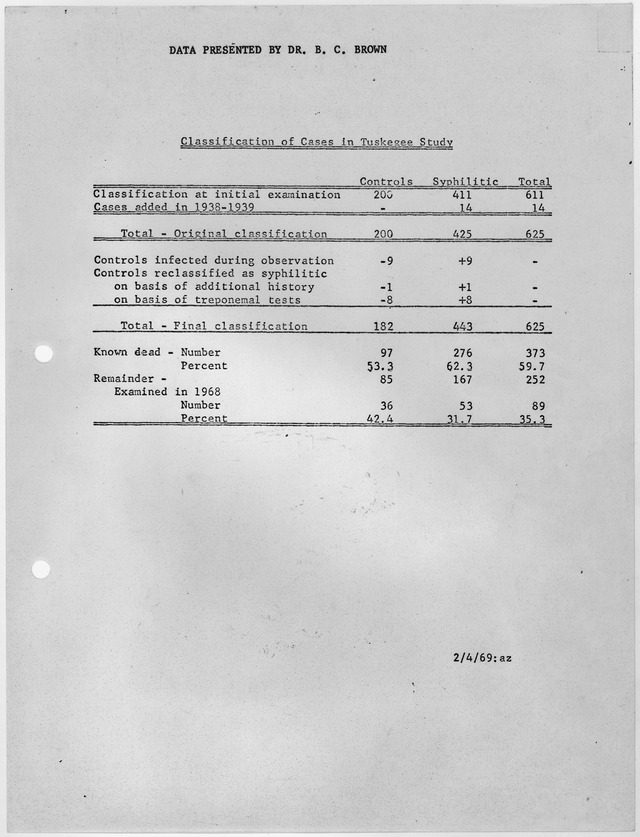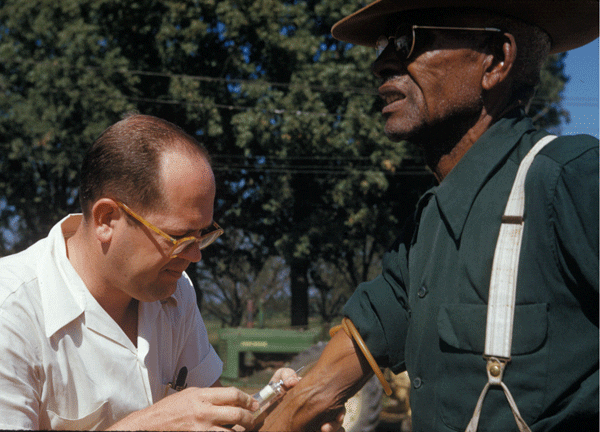Harshika Avula, Lekhya Kintada, Daniel Noorily, Bharath Ram, Kevin Zhang
Health Careers High School
Senior Division
Group Website
Between 1932 and 1972, doctors from the United States Public Health Service undertook a project in rural Alabama to allegedly treat “bad blood” and other illnesses among local African-Americans. But these doctors’ real agenda was to observe the impact of untreated syphilis. Over four decades, 600 African-Americans, believing they were receiving genuine medical attention, were given placebos and prevented from treating their syphilis. To this day, the Tuskegee Syphilis Experiment remains one of the most controversial moments in the history of American medicine.
Harshika Avula, Lekhya Kintada, Daniel Noorily, Bharath Ram and Kevin Zhang created “‘America’s Dirty Little Secret’: The Tuskegee Syphilis Experiment,”a website for Texas History delving into this dark chapter of medical history. Their site explores the study’s origins, how it operated and the individuals it used.
Officially titled “The Tuskegee Study of Untreated Syphilis in the Male Negro,” the experiment, originally designed to study the progression of untreated syphilis in African American men for six months, ran from 1932 to 1972. The study had 600 participants: 399 with syphilis and 201 in the control group. The doctors lured the participants with false incentives, and although penicillin, a cure for syphilis, was available in 1947, physicians did not treat the participants.

Government document depicting number of patients with syphilis and number of controlled non-syphlitic patients, 1969 (Wikipedia)
The 600 sharecroppers involved in the Tuskegee Syphilis Study sought compensation for the damages incurred during the experiment. The progress of the Civil Rights Movement and the rights previously promised to human research subjects in the Nuremberg Code only served to encourage public support of the trial. After being subjected to prejudice and inequality, the participants and their families felt the court’s award was inadequate. The final settlement awarded $10 million divided among the living patients and their relatives.
The latest terrific work from Texas high school students:
A documentary on one man’s attempt to fight injustice in World War II America
A research paper on the balance between public health and personal liberty




